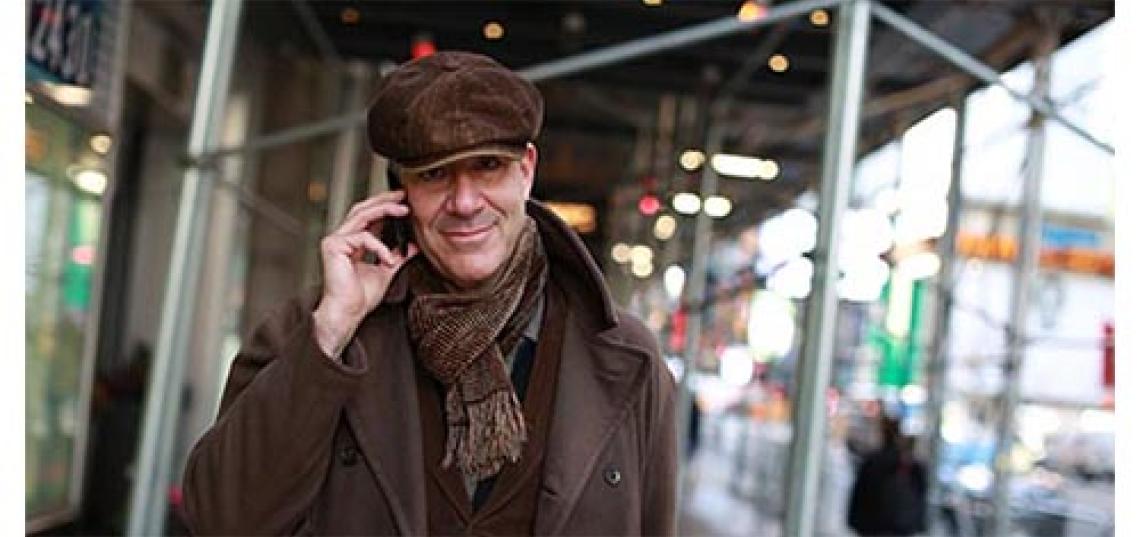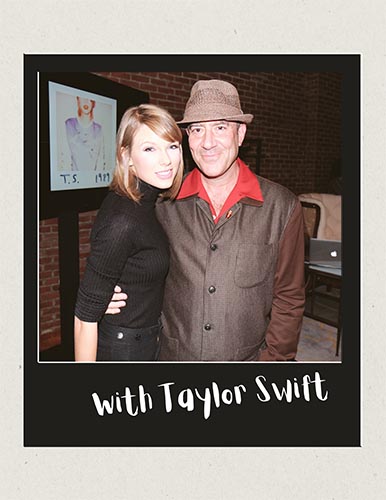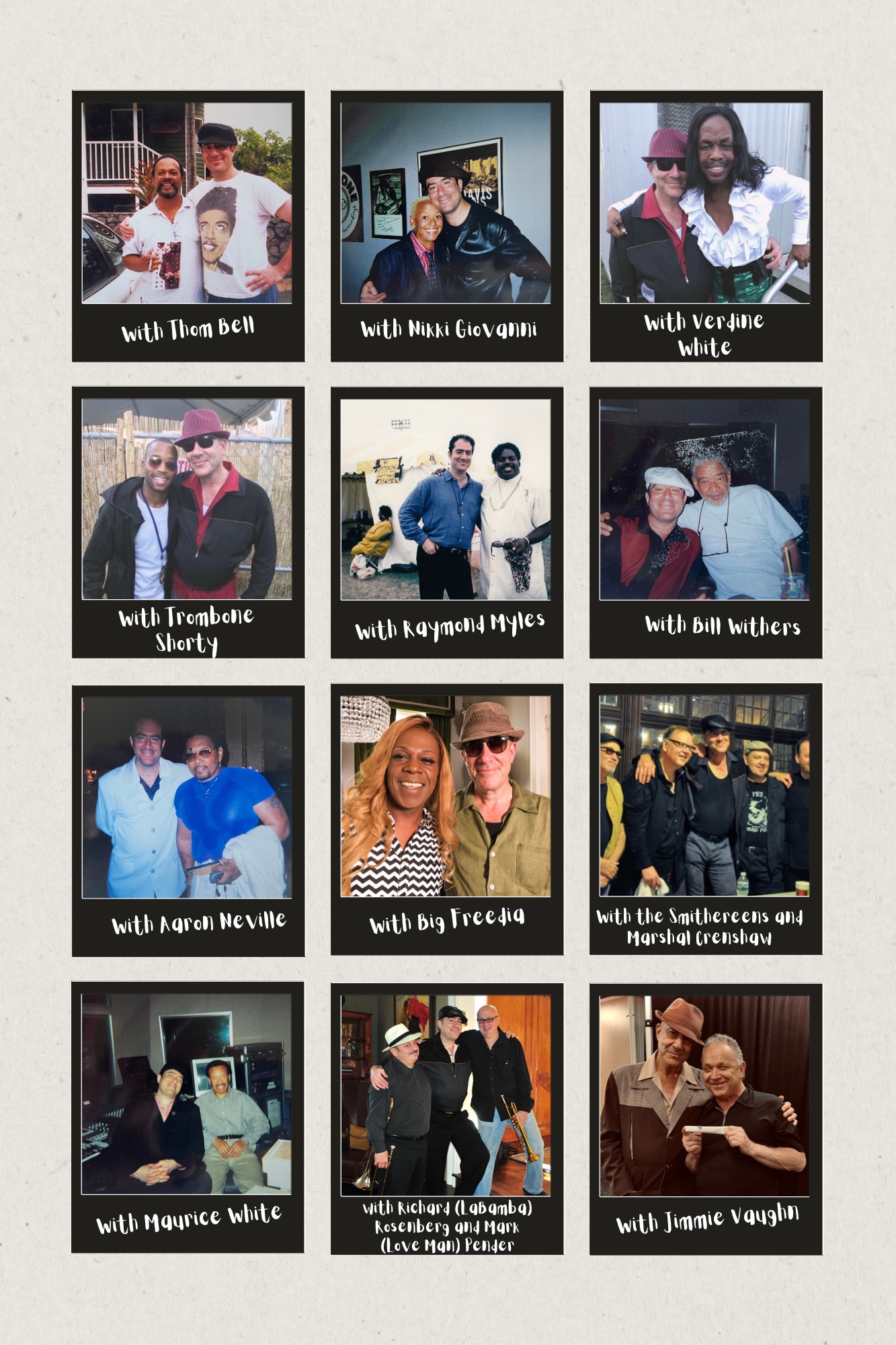
Storytelling, says SC&I Part-Time Faculty member Leo Sacks, is as old as humankind. And documentary storytelling has a storied place in journalism.
“In the age of AI tools and content bots, human-driven narratives connect us like never before,” he says. “Being authentic, fact-based, and perhaps soulful is essential to the art of crafting an impactful documentary.”
Sacks has taught Documentary Filmmaking & Storytelling (formerly Digital Storytelling) since 2021. He has cultivated a multi-disciplinary approach to storytelling through his iconic cultural and journalistic experiences.
“I was lucky enough to see Bruce Springsteen before he made the covers of Time and Newsweek,” he offers. “I visited Communist East Berlin before the fall of the Berlin Wall. I was in the newsroom when the Challenger exploded, when Nelson Mandela was released from Robben Island prison and the U.S. invaded Iraq during the first Gulf War. These were formative moments for many, including me.”
 Sacks has written for newspapers and magazines as wide-ranging as People and The New York Times Book Review. The N.J. Society of Professional Journalists recognized him for Writing Excellence. He contributed an essay about his grandfather to a collection of stories edited by the poet Nikki Giovanni. He edited a coffee table book for photographer Don Hunstein that won a Benjamin Franklin Award from the Independent Book Publishers Association. As a Grammy winner for Sony Music, his compilations burnished the legacies of legends like Bill Withers, Aretha Franklin, Marvin Gaye, Luther Vandross, and Earth, Wind & Fire.
Sacks has written for newspapers and magazines as wide-ranging as People and The New York Times Book Review. The N.J. Society of Professional Journalists recognized him for Writing Excellence. He contributed an essay about his grandfather to a collection of stories edited by the poet Nikki Giovanni. He edited a coffee table book for photographer Don Hunstein that won a Benjamin Franklin Award from the Independent Book Publishers Association. As a Grammy winner for Sony Music, his compilations burnished the legacies of legends like Bill Withers, Aretha Franklin, Marvin Gaye, Luther Vandross, and Earth, Wind & Fire.
“A Taste of Heaven,” Sacks’s documentary about the gospel artist Raymond Myles, which received a 2022 Better Angels Society/Ken Burns fellowship, is now in post-production.
SC&I: What are the journalistic goals of “Documentary Filmmaking & Storytelling”?
LS: Students will have an opportunity to develop stories about race, gender, class, ethnicity, disability, and social justice, and tell them through traditional and emerging journalistic formats. I’m always partial to stories that illuminate life’s complexities, hot-button issues, unsung characters, and transformational experiences. And, we’ll explore the stylistic and narrative approaches of canonical documentarians like Errol Morris, Sacha Jenkins, Martin Scorsese, Sam Pollard, Michael Moore, Frederick Wiseman, Spike Lee and Ken Burns.
SC&I: What do you hope students take away from the course?
LS: The ability to capture different voices and perspectives, and contextualize them in cultural, social, political, historical, and human terms, for the broadest and narrowest audiences. Most of all, I want to inspire you. Ira Glass says a great story happens to those who can tell it.
SC&I: How did you become a journalist?
LS: I was born in New York City in 1957 and raised during a colorful time on the Upper West Side. My parents were politically and socially engaged. My father was a clinical psychologist who saw his patients in our home and I had interactions with some complicated people. At the same time, my mother, a copywriter, cajoled me to find unpronounceable words on the front page of the Times and look them up in the weathered Webster’s dictionary she kept next to her cookbooks. Thank goodness, the radio was always on so music was my escape. Three-minute pop songs reassured my eight-year-old self that everything and everyone was going to be alright.
I was published in the Village Voice and Rolling Stone as a teenager. I studied journalism and political science at CCNY. After college, I wrote about the business of music for Billboard. Covering heroes, villains, pets, and kiddies for The New York Post was more harrowing, heartbreaking, ghoulish and whimsical. Every assignment prepared me to write for the NBC Nightly News and iconic anchors like Tom Brokaw and Brian Williams.
SC&I: Tell us about working with modern masters at Sony Music.
LS: Bill Withers was a post-modern prophet who created the most intimate brand of conversational art with “Ain’t No Sunshine” and “Grandma’s Hands.” Maurice White of Earth, Wind, & Fire was the Captain of Cosmic Consciousness. Aretha Franklin demonstrated her otherworldliness long before she became the “Queen of Soul.” And revisiting the outtakes from Marvin Gaye’s “Sexual Healing” album was like being a first-hand witness to his struggle between God and Mammon. 
SC&I: What makes Raymond Myles a good documentary subject?
LS: Raymond was a dazzling, incandescent gospel artist. And, he was a queer man who was murdered on the cusp of stardom. Our film lifts the veil on hypocrisy and intolerance. And, his story is critical to the historical and cultural preservation of New Orleans after Katrina. https://www.raymonddocu.com/
SC&I: Have you always wanted to teach? And how did you arrive at Rutgers?
LS: Becoming a teacher is a natural extension of my curiousness. My parents were also teachers, and you know what they say about the apple and the tree. I’m grateful to the guidance and leadership of SC&I faculty members John Pavlik, Steven Miller, Jack Bratich, and Amy Jordan for recognizing that my temperament and experience would resonate with SC&I’s students.
SC&I: What would you tell a young person who’s interested in journalism?
LS: Keep abreast of the mainstream media. As I remind my teenaged son, just because a story appears on social media doesn’t mean it’s accurate or newsworthy. Consider every news and feature story that you read or hear as the seed or spark of a larger story worth exploring. Support your ideas with solid data. Zero in on the human experience. Pitch your ideas to the Targum and WRSU.
Also: Carry a notebook or use the Notes app. Remember snippets of conversation. Linger at the bookstore. Read the ads on mass transit. Most of all, give yourself permission to be vulnerable.
Learn more about the Journalism and Media Studies major and department on the Rutgers School of Communication and Information website.
Images: Courtesy of Leo Sacks
